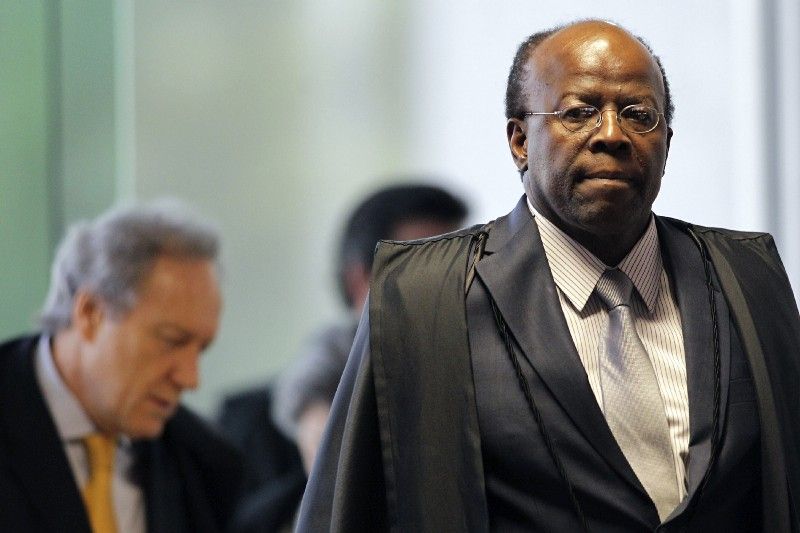Brazil’s topsy-turvy presidential race just got even wilder as nationally-renowned former Supreme Court President Joaquim Barbosa is set to throw his hat in the ring.
Barbosa’s personal story is as compelling as they come. Born into poverty, his first job in a courtroom was as a janitor. But he rose to become Brazil’s first black supreme court justice, achieving fame by overseeing the massive corruption trial that ensnared the government of former-president Luiz Inácio “Lula” da Silva. (The Car Wash corruption scandal that would bring down Lula’s successor, Dilma Rousseff, would come later.)
In a mad-as-hell election cycle defined above all by frustration with the status quo, Barbosa will have broad appeal as a blunt-spoken anti-corruption crusader untainted by electoral politics.
What’s more, his progressive social views and humble origins will help him poach votes from current front-runner, Lula, who may in any case be behind bars before the voting even begins.
Importantly, in a country where more than half the population identifies as black or mixed race, a strongly competitive black candidate would mark a political and social watershed. If he wins, he’d be the country’s first black president.
Still, it’s a long way from here to election day in October. Brazilian party politics are brutal business, and Barbosa’s inexperience may sink him before then. But for now, his entry could mark an extraordinary turning point in one of this year’s most pivotal elections.
